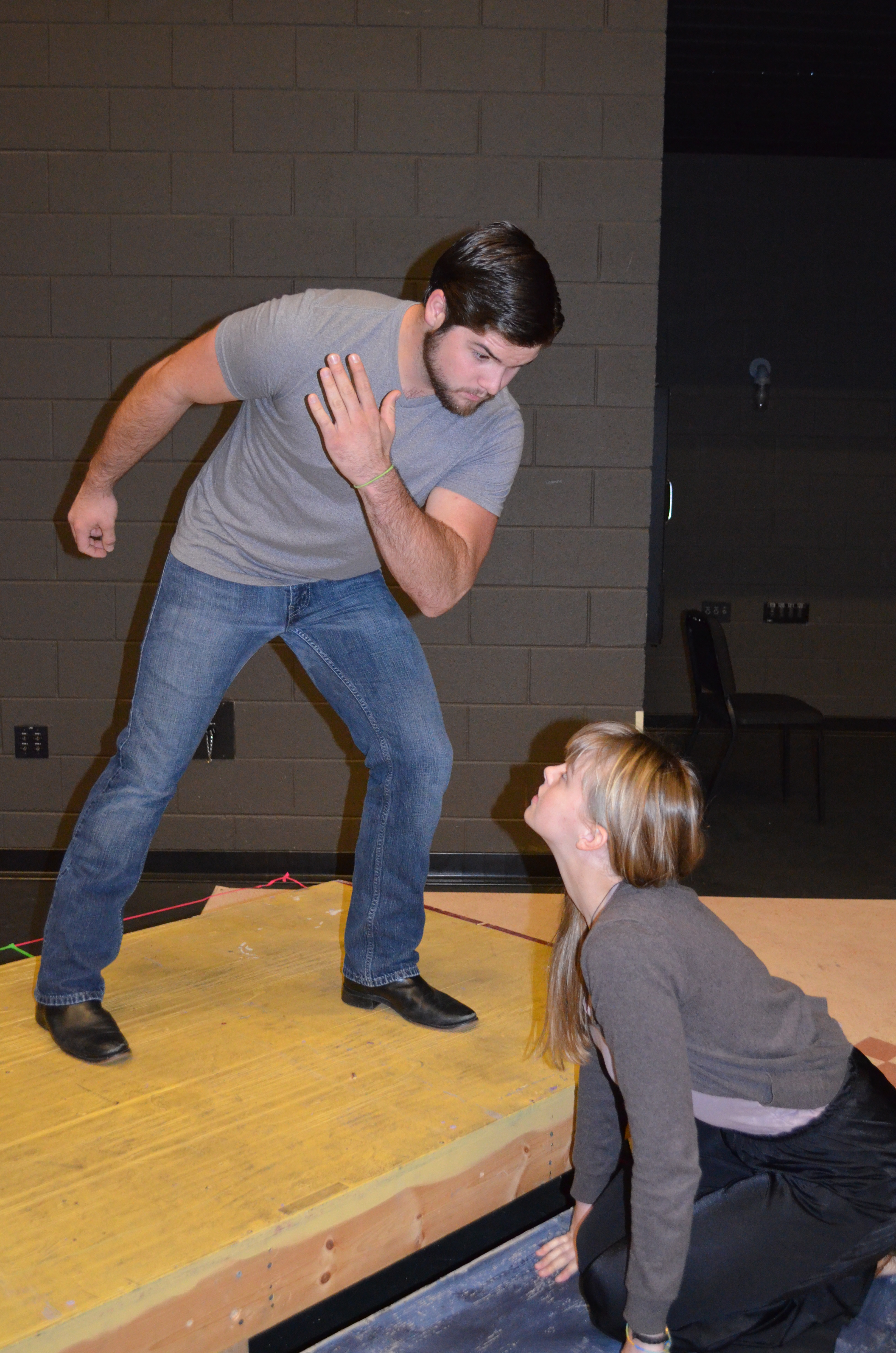Euripides’ ‘Medea’: Diary of a mad Greek woman
Opening night of the Maryville College Theatre Department’s production of Euripides’ Greek tragedy “Medea” began with a bang. The Haslam Family Flexible Theatre was packed full without an empty seat in sight.
While the play was scheduled to start at 8 p.m., it ran about fifteen minutes late, but during that time a lovely southern woman in the front had a few chuckles with me about how this “Medea” sounded like Tyler Perry’s Madea character, and we laughed until the lights dimmed.
To summarize, “Medea” revolves around a woman named Medea who has just learned that her beloved husband has decided to exile her and their two sons while he prepares to marry a princess, instead. In perfect Greek form, Medea grieves and becomes stricken with an obsession to exact revenge on her ex-lover.
Somehow, she reasons that not only will she kill her husband’s new bride, but she’ll also slay their two sons. She does both successfully.
I must say that senior Caitlin Campbell and junior Cameron Hite, who played the lead roles of Medea and Jason the Argonaut respectively, completely sold me with their performances. Campbell gave a new definition to “hell hath no fury like a woman scorned” with her crazy eyes, and Hite acted with such a confident, yet cocky, air that he made Jason the chauvinist pig we all love to hate. Or hate to love, in my case. It’s a complicated feeling.
The set didn’t wow me, but the use of video projection onto a screen in the back did prove to be effective in giving a sort of glimpse into why Medea has gone mad with jealous rage. The chorus did that job well, but the scenes on the screen gave the introduction that little extra it needed.
The two little boys who portrayed Medea’s young sons were amusing with their lackluster performances. I cracked up every time they walked onstage and sat there looking obviously and painfully bored, especially when they had to pretend interest in a Gameboy console that was probably older than them.
Despite the potential of the little boys to distract from the performances of the rest of the cast, the others impressed me. The five young ladies who made up the Chorus reminded me of the Muses from Disney’s “Hercules,” and I kept expecting them to break out in song whenever the spotlight shined on them.
Sadly, that didn’t happen, but their performance more than made up for it.
The crew successfully kept the atmosphere dark and suspenseful, daunting, with the carefully chosen moments of lightning, thunder, and drum sound effects. The soft violin music in the background brilliantly portrayed Medea’s fast descent into insanity and obsession with each little pluck and high-pitched screech of the strings.
In a nutshell, this is a must see. Yes, it’s another great tragedy, but every character was performed so well that you can’t help but hop aboard the crazy train with Medea as the conductor. It’s a bloody, bumpy ride, but well worth it.

